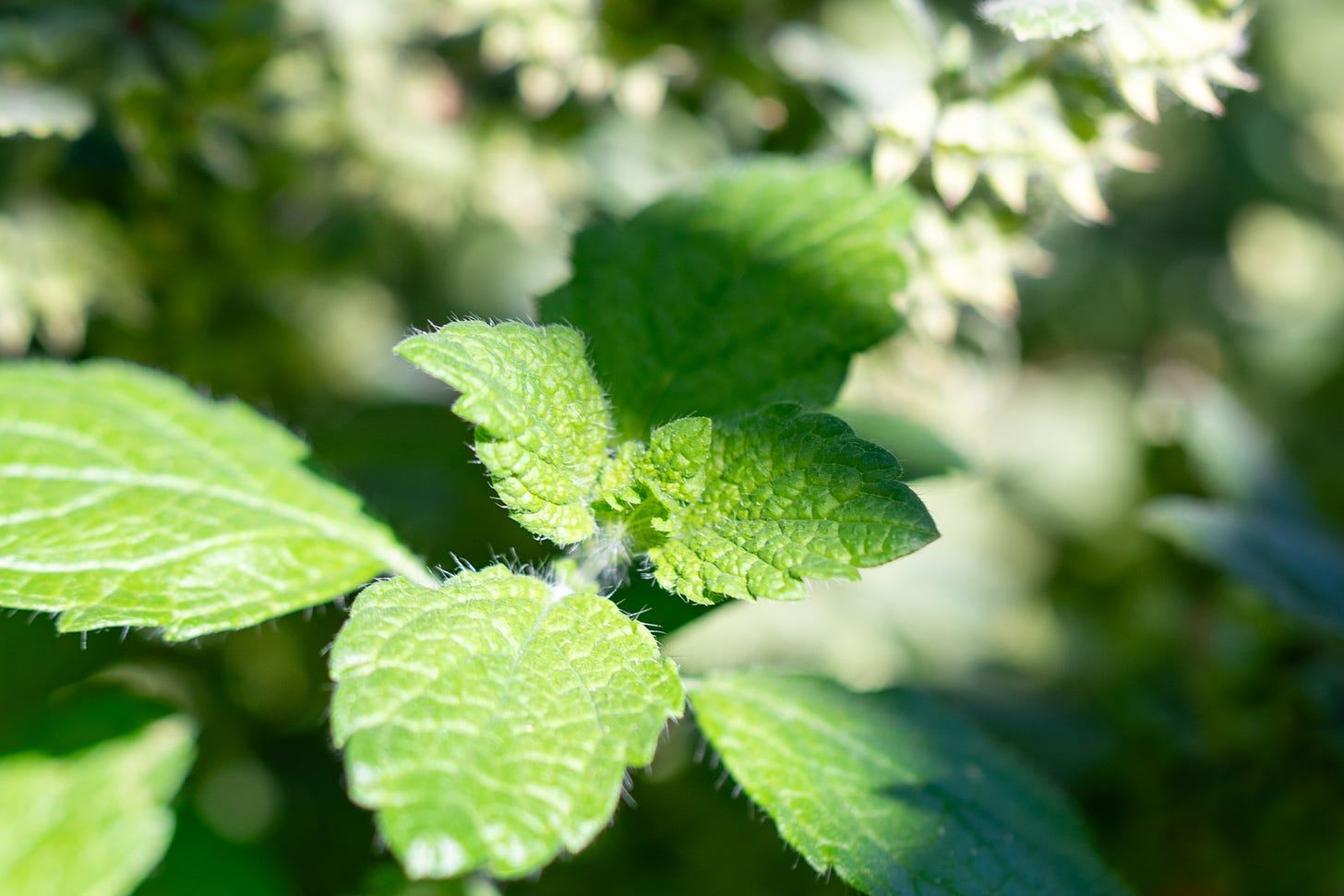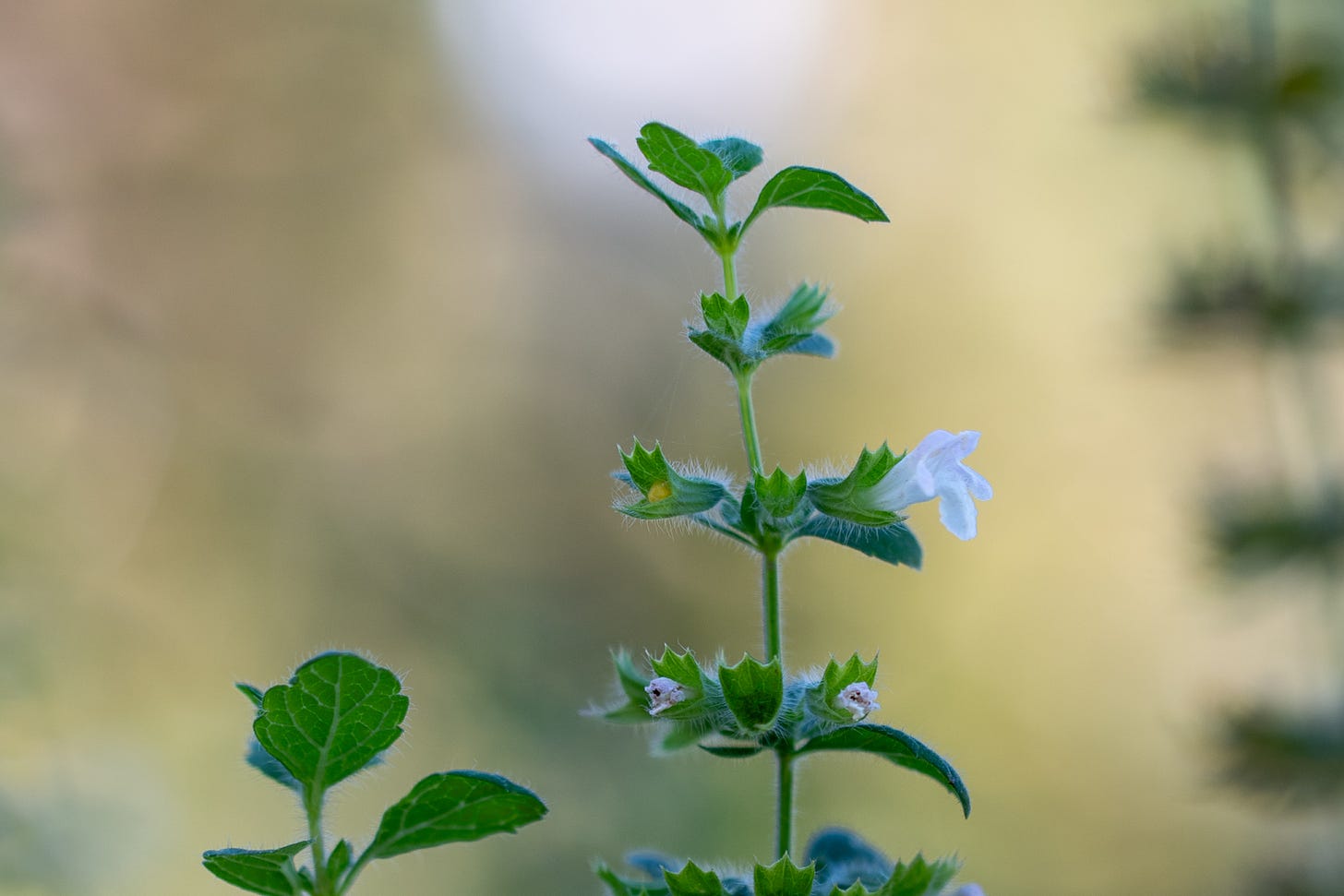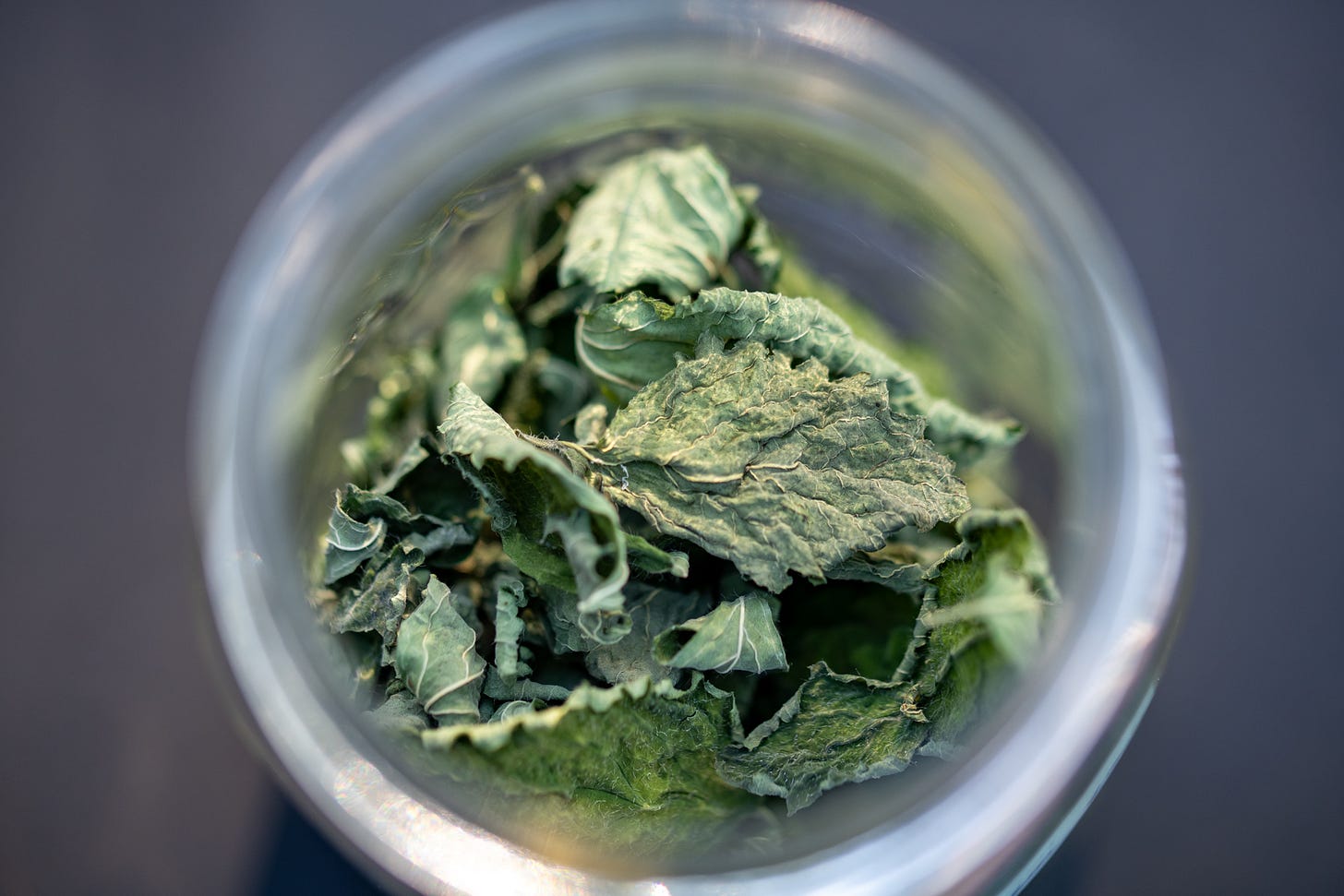Melissa Officinalis
I wanted to introduce one of my go-to herbs that is easy to grow, dry, and make into a variety of herbal remedies. Most of the time I use it dried but the tincture is nice too. Lemon balm, Melissa officinalis, is a well-known herb in the mint family and is one of the first herbs I began growing myself. Melissa means bee in Greek, which is fitting since the pollinators adore the flowers.
Calming & Refreshing
The leaves have a lovely lemon scent and taste that offer a calming effect when ingested. At the end of the day, I brew a cup to drink while I curl up with my latest read. It tastes great warm or cold with a touch of honey added, and it pairs well with red raspberry leaf or peppermint. Sometimes when I’m working in my garden I will rub a leaf between my fingers, inhaling the scent for an uplifting burst of energy.
From Growing to Harvesting
Lemon balm is a perennial, hardy in zones 4-9. In colder areas, it will die back in the winter and sprout again in the spring. The mint family is known to spread so I recommend containing it somehow so it doesn’t take over. Harvesting the leaves before the flower heads develop is best because the older leaves are less fragrant. Use the leaves fresh or dried.
Now that my plants are a couple of years old there is plenty for me to harvest and to leave the rest to flower for the bees. I gather leaves throughout the spring, summer, and fall - using them fresh during the summer and dehydrating some to use during the winter.
Medicinal Uses:
Stress
Anxiety
Mood Enhancer
Insomnia
Improve digestion
Headaches
Heal cold sores
High blood pressure
Headache
Spiritual Uses:
Balances feelings & emotions
Used to attract love or heal a broken heart
Contraindications: Do not take with thyroid medication, and use caution with any sedative medications since lemon balm can also cause sleepiness in some people.
Herbal Actions:
Nervine
Sedative
Antiviral
Antioxidant
Mild antispasmodic
Vasodilator
Fun Facts about Lemon Balm:
Lemon Balm salves work great to heal cold sores
Native to Europe, but now grown all over the world
The oils from this herb are good at repelling insects
Its herbal use can be traced back to at least 2000 years
Some studies show it enhances memory and cognition








